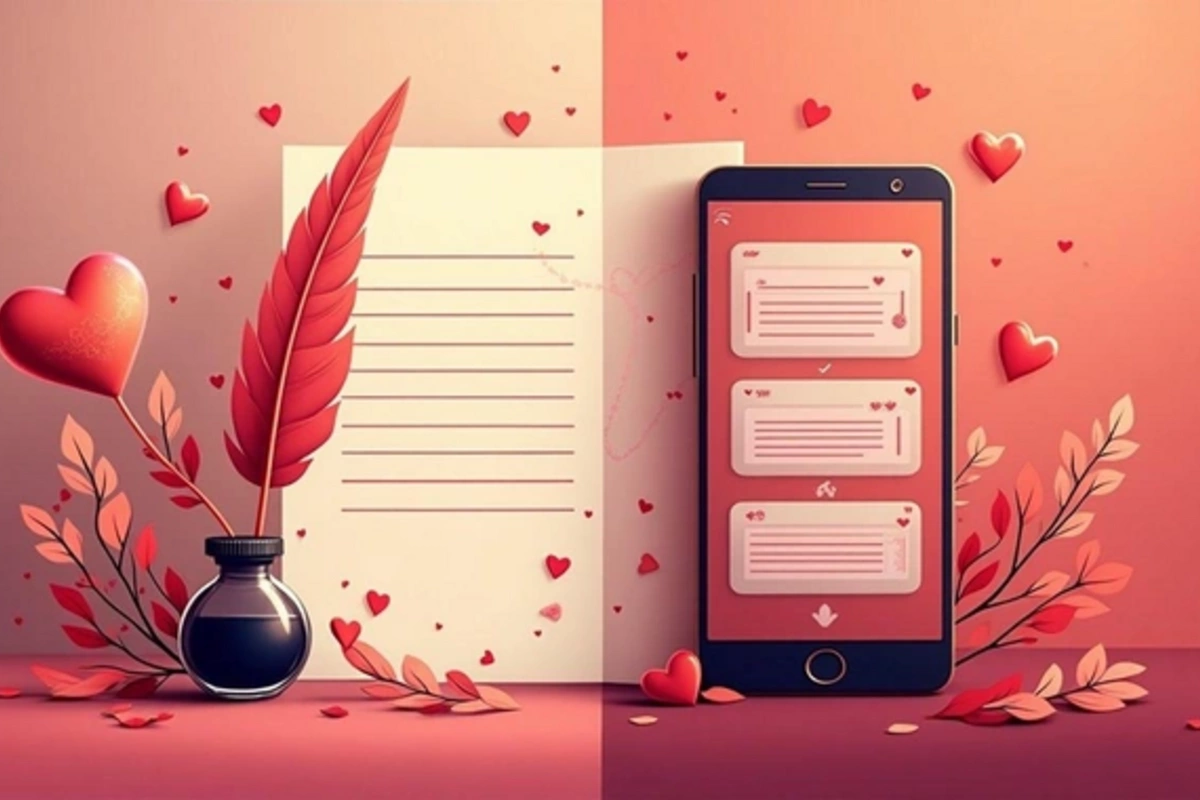29 Apr , 14:57 2025
6

Love has changed from letters to likes over 10 years, becoming more accessible but losing depth.
Love has always been a dynamic feeling, adapting to social and technological changes. Over the past decade, the digital revolution, social media boom, and transformation of social norms have radically changed the ways people find, express, and maintain romantic relationships. If love letters were once considered the highest expression of feelings, today they have been replaced by likes, emojis, and messenger messages.
Love letters, which once required time and emotional labor, have practically disappeared from everyday life. According to materials from chelny-izvest.ru, paper messages, as in the story of the Takhaviev couple, where the groom wrote a hundred letters to his bride before proposing, have become a real rarity. In the modern world, they have been displaced by instant messages in WhatsApp, Telegram, or Instagram. A 2013 Havas Worldwide study revealed a shocking fact: 32% of young people (18-34 years) consider virtual relationships as real as offline communication. This clearly demonstrates how the internet has changed the very nature of romantic interaction.
Benefits of digitalization: Instant messages allow maintaining connection at a distance, making relationships more accessible. People can exchange photos, videos, and voice messages, which adds emotional depth.
Drawbacks: The speed of communication reduces depth. Likes and emojis often replace thoughtful words, which can lead to superficial expression of feelings.
Social networks such as Instagram, TikTok, and Facebook have introduced a new way of expressing affection - likes and comments. An article on trends.rbc.ru notes that the "like" button, which first appeared on Facebook, became a universal tool for demonstrating attention, but over time has devalued, causing users stress and dependence on approval. For example, Leah Pearlman, one of the creators of the "like" button, admitted that changes in Facebook algorithms reduced engagement with her posts, causing a feeling of "oxygen" deprivation.
Impact on psychology: Likes are associated with FOMO syndrome (fear of missing out), decreased self-esteem, and anxiety. Users often evaluate their attractiveness by the number of likes, which is especially noticeable among young people.
Rejection of likes: In 2021, Instagram began testing hiding like counters to reduce pressure on users and shift focus to content quality.
Likes have become not only a way to express sympathy but also a tool of social capital, where public approval on social networks is perceived as confirmation of the value of relationships.